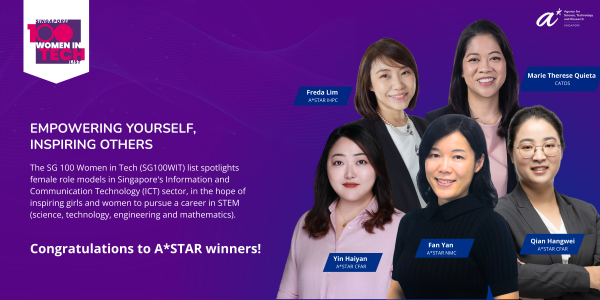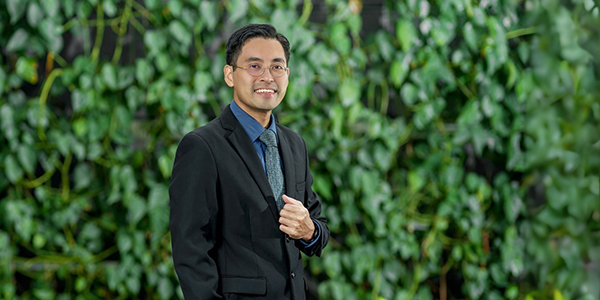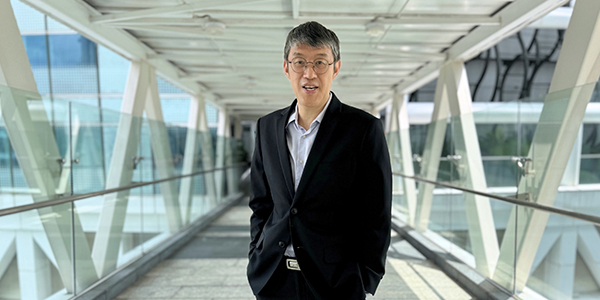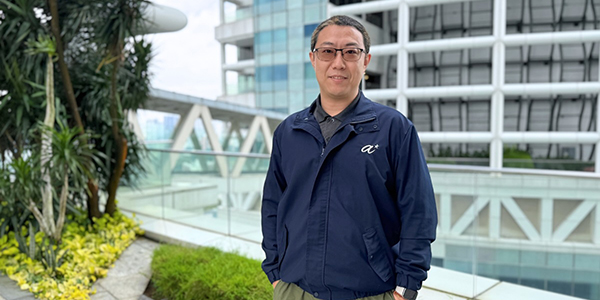FACES OF A*STAR
Powering A Sustainable Future In Energy
Aqueous aluminum metal batteries could pave the way for industries to reduce their carbon footprint
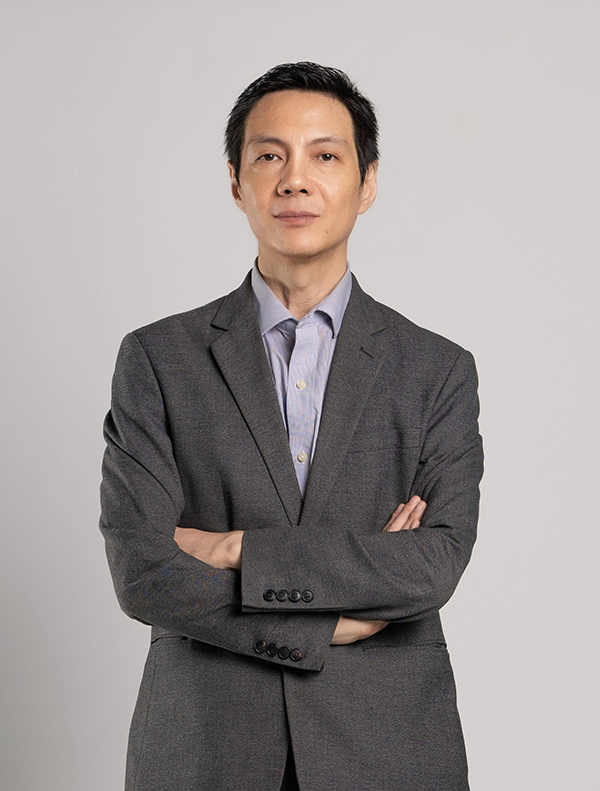
From consumer electronics to the automotive and aerospace industries, lithium-ion batteries power modern life. However, they come with significant risks - flammable electrolytes in these batteries can react with air or water, posing fire hazards if battery casings are compromised or overheated.
In the race for safer and more sustainable solutions, Prof Alex Yan is leading the charge. His research focuses on scaling up aqueous aluminum metal batteries (AAMBs) as a next-generation energy storage solution for industrial use.
At A*STAR Institute of Materials Research and Engineering (A*STAR IMRE), Prof Yan and his team developed an amorphous aluminum layer on the battery’s anode. This innovation effectively reduces undesirable chemical reactions, improving battery efficiency and lifespan.
Beyond improving battery performance, this innovation has enabled using a water-based electrolyte, making AAMs safer and more environmentally friendly than traditional lithium-ion batteries.
We're developing a rechargeable AAMB prototype, and I predict that in about five years, we should be able to collaborate with industry to take it to market.
In addition to his work on AAMBs, Prof Yan is driving advancements in thermoelectric materials at A*STAR IMRE. He studies non-toxic, efficient materials that function at low or room temperatures – ideal for thermoelectric generators of the future. These thermoelectric materials are promising because they are abundantly available, and converting them into energy helps to reduce carbon emissions.
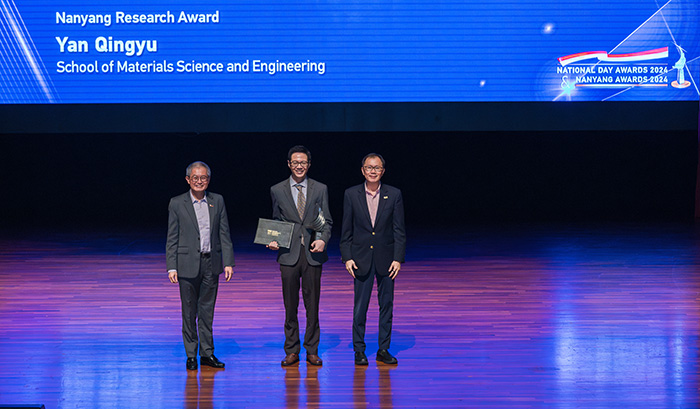
Prof Alex Yan received the Nanyang Research Award for his pioneering work in sustainable agriculture.
Prof Yan’s impact extends beyond energy storage. In 2024, he received the Nanyang Research Award for his work in sustainable agriculture. His innovation offers a greener and more energy-efficient way to produce urea – a fertiliser – using electricity instead of high-energy industrial processes.
His method leverages nitrate and carbon dioxide as raw materials, and an indium hydroxide catalyst is used to speed up the reaction at room temperature. This method reduces energy consumption, making urea production more sustainable.
Prof Yan’s passion for science was shaped by his father, a scientist, and his mother, a civil engineer. He pursued a PhD at Stony Brook University in New York, where he was mentored by the late Professor Richard Gambino, a renowned scientist who built his research career at IBM before moving into academia.
Prof Gambino taught me about research, innovation, and even becoming a better person.
Today, Prof Yan continues this legacy of mentorship, guiding research fellows and PhD students at A*STAR IMRE and NTU. He helps them navigate the challenges and triumphs of scientific discovery, nurturing the next generation of scientists.
My advice to young scientists is simple: Find something that truly interests you and keep working on it. Explore other areas too, but never lose sight of your passion - because one day, you’ll be the one to solve the problem..
Was this article helpful?
A*STAR celebrates International Women's Day

From groundbreaking discoveries to cutting-edge research, our researchers are empowering the next generation of female science, technology, engineering and mathematics (STEM) leaders.
Get inspired by our #WomeninSTEM

